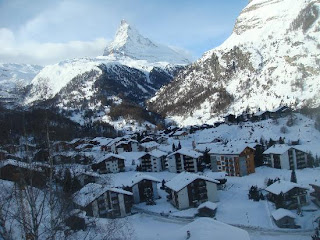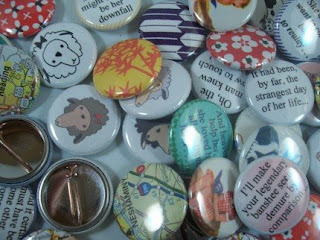
The number of mice outnumbers the people in my apartment. My room mates perpetually taunt each other about the rat king who inhabits our walls and lives off our filth. It’s not like we try to be unsanitary - we clean up, but the dishes always seem to accumulate regardless of the measures me take to reduce them. Sometimes I feel like it takes on a life of its own at times.
It seems to be a question of responsibility. “Those dishes aren’t mine, I’m not doing them” some room mates say. But the fact is, we all live here. It doesn’t matter whose dishes they are in the sink, they affect everyone, and if nothing is done about them then our apartment will continue to be filthy, attract mice and fruit flies, and smell rank.
I think the same can be said of the world at large.
Globally, temperatures are increasing rapidly and greenhouse gases are accumulating. Our human activities - primarily the burning of fossil fuels - is the main reason for this. But who exactly, is responsible? Who can we point a finger at? The U.S., whose frivolous consumptive habits and SUV driving have reached epic proportions? Or China, who depends on 75% of its total energy from coal? The list of possible offenders is infinite. But the truth is, there is no single culprit behind climate change.
The well known figures attempt to provide the hard facts. Developing countries like India, China and Brazil made up 22.2% of the global carbon emissions in 2004, and the rate is increasing as they develop. Canada, U.S., and Australia made up 24.5% of global emissions in 2004 – but these three industrialized countries comprise just 6% of the world’s population, which breaks down to about 21 tons of carbon dioxide per person. The aforementioned three developing countries make up 40% of the world’s population, which breaks down to 7 metric tons per person.
As industrialized nations are realizing the dangers of global warming, they are starting to make some changes. But the same standards are being imposed on developing countries, who face the same environmental challenges, but without the financial resources. How can we expect to force a required change on the countries that already suffer?
Impoverished countries don’t currently have any legal obligation to reduce greenhouse gas emissions, but their governments acknowledge that the need for sustainability exists. China, (the top polluter in the world by 2007,) is taking measures to clean up. It is predicted that by 2020, emissions will be 7% lower than they originally would be. Some remote villages that are off the grid are utilizing wind and solar power to provide electricity. Independence is key to sustainability. But China isn’t the sole cause of its own ecological demise. Countless goods for the Western world are manufactured here - clothing, plates and bowls, bookshelves and bed frames. The mass manufacturing of these items contributes enormously to their emissions.
The effects of climate change are felt most severely in these developing countries, where small islands could be swallowed by rising water, storms hit, and intense heat waves could destroy livelihoods. The carbon emissions of the rich will ruin the lives of the poor. The Western world has the influence and power to make changes that would have effects everywhere.
The Kyoto Protocol, in its goal to reach %15 reductions in global emissions, imparted the largest reductions to the biggest emitters. Political will and popular support also played a role. For the Protocol to become active, 55 countries had to ratify it, and those 55 had to be responsible for at least 55% of the world greenhouse gas emissions. As of 2009, 183 countries have ratified the protocol. Virtually every industrialized country except the U.S., and Australia are included in that number. The omission of the U.S. sends out the strong message that climate change isn’t being taken seriously by one of the most influential global powers.
During his presidency, American president George Bush argued that the Kyoto Protocol would hurt the economy, as business emissions would be limited and their competitors in developing nations wouldn’t be. Prioritizing economic prosperity over climate change is a dangerous precedence, and a dead end.
Similarly, current Canadian Prime Minister Stephen Harper has refused to implement any aggressive cuts to pollution. He has spent $1.5 billion on renewable energy, but continues to subsidize the tar sands, a massive energy consuming oil enterprise in Fort McMurray, Alberta. This fact alone is enough to question his green intentions. Harpers Clean Air Act, an attempt to combat air pollution and greenhouse gases, focuses on reducing emissions relative to the size of the economy. The size of each economy makes no difference to the concentration of greenhouse gases in the environment. Harper has no immediate targets, and no legal obligation to reduce. The money he is spending on renewable energy is wasted – developing low carbon technology without cutting emissions is futile.
We need to reach a global agreement in order to coordinate efforts, create a unified target, and facilitate the transfer of knowledge and technology. It starts with the Western world, which sets an example for everyone. Right now, the global average is only %3.5 renewable energy. While no single renewable energy source can replace fossil fuels entirely, collectively, it is possible. For a secure and sustainable future though, humanity must rely on a range of energy sources.
Solar energy provides over 7500 times civilizations current demand. Some companies even tell us that it can compete with coal. A popular way to use this renewable energy involves panels usually placed on roofs, shingles, tiles, or glazing on windows. The main downside is the cost. Solar power is the most expensive form of renewable energy. The wider its use, however, the cheaper it becomes. Until this resource is made easily accessible, it will remain expensive.
We can’t wait around for higher authorities to make it easy to be green. Nor can we afford to waste time deciding who is responsible for the increasing temperatures. Individual action can be taken to reduce our personal carbon footprints. The example we set will have a resounding effect on those around, and the world at large. The problem of climate change belongs to everyone. It is everyone’s responsibility to reduce emissions. Just like the dishes in my 4 bedroom apartment, we all suffer from the collective filth and pointing fingers doesn’t solve the problem. If we don’t take action now, we’ll be pointing fingers at one another until it’s too late.










